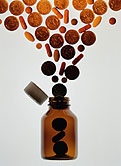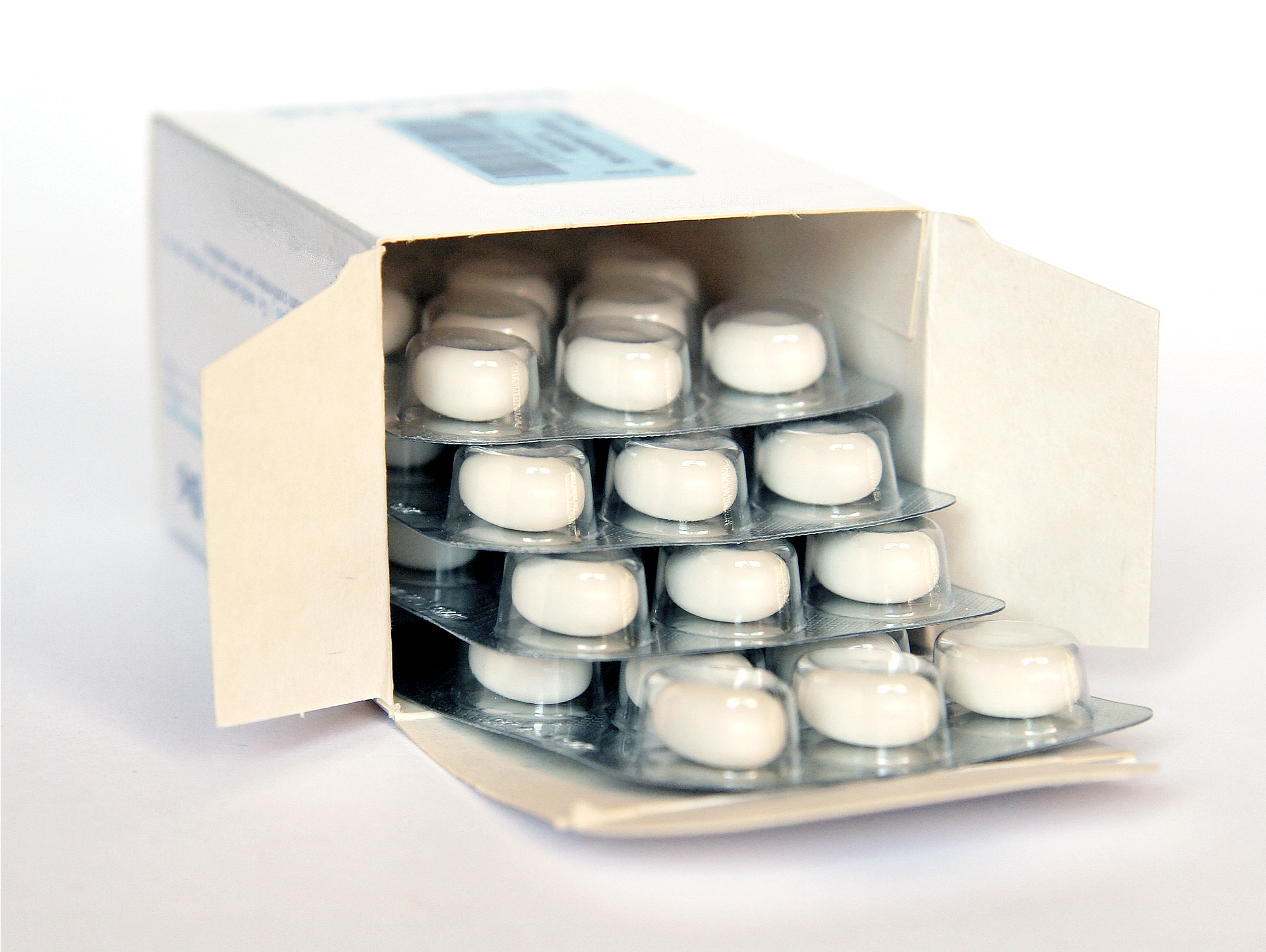
MONDAY, March 29 (HealthDay News) — You know you should eat better — but that daily multivitamin pill, calcium supplements and possibly others compensate, right?
Perhaps.
But nutrition experts say that getting crucial nutrients from food, when possible, is better than popping pills.
The American Dietetic Association, in fact, has updated its guidelines on nutrient supplementation and now stresses that eating a wide variety of nutrient-rich foods is the best way to get needed nutrients and reduce the risk of chronic disease.
The update comes at a time when nutrient supplementation continues to be a growing trend in the United States. Americans spent more than $23 billion on dietary supplements in 2007, according to the association’s report, and one-third of adults use a multivitamin and mineral supplement regularly. Others use a variety of supplements, which prompts worry among health experts about the potential negative effects of megadoses.
So what makes it better to get nutrients from foods rather than pills?
“Foods are special,” said Andrea P. Boyar, a co-author of the position paper and an associate professor of dietetic foods and nutrition at Lehman College of the City University of New York.
Foods are complex, and the nutrients within them interact in different and more beneficial ways than they would in supplements, she said. Also, many foods contain healthy dietary fiber, which isn’t part of a multivitamin supplement, she said.
“Food is still the ideal,” Boyar said, stressing that she means “whole foods” — those that are not processed or are as minimally processed as possible.
Yet Boyar and other nutrition experts concede that supplements can often fill dietary gaps. That’s particularly true, she said, for vitamin D and calcium, especially as people age. She also cited iron, which is often needed by premenopausal women, who lose it with their monthly periods. And, for women of childbearing age, folate supplements have been shown to help prevent birth defects.
Overuse of supplements, though — and particularly megadoses — worries health experts. Megadoses of vitamin E, for instance, are particularly hazardous, Boyar said.
As for the ideal food-supplement balance, Penny M. Kris-Etherton, a nutrition professor at Penn State University, said that “ideal” depends on the individual but, in general, think healthy whole foods first.
“Food does not just provide one nutrient but a lot of nutrients and collectively helps individuals meet their nutrient needs,” Kris-Etherton said.
She acknowledged that some people have trouble getting enough nutrients, especially calcium and vitamin D, through food alone. But she cautioned people to avoid high doses of vitamin E supplements, which have not proven effective in helping to reduce heart disease, as some had thought.
Smokers who take high doses of beta carotene supplements also can have adverse effects, she said. And antioxidant cocktails can interfere with cholesterol-lowering drugs.
“Ideally, people would get their nutrients from their diet,” agreed Dr. Michelle May, a member of the American Academy of Family Physicians and author of Eat What You Love, Love What You Eat.
She said she tries to dispel the “more is better” mentality that many people have when it comes to popping supplements. Their thinking, May said, is often: “It’s natural, so it’s got to be safe.” But in many cases, she said, the megadoses are not needed or are, in fact, unsafe.
More information
The U.S. Office of Dietary Supplements has more on understanding supplements.

